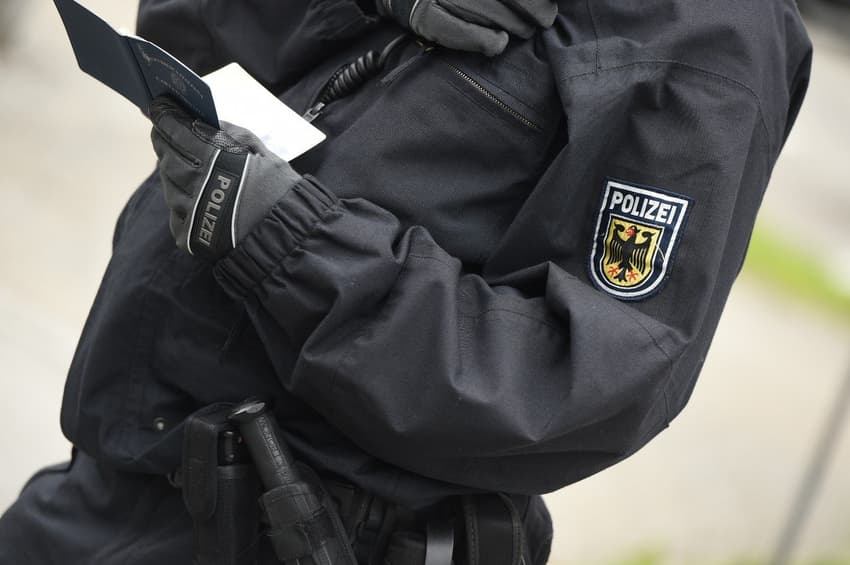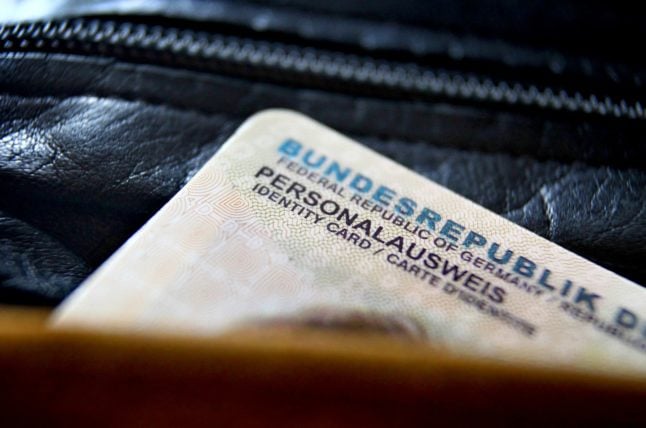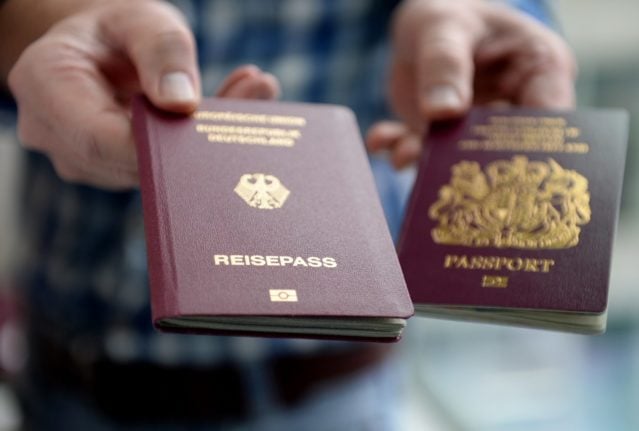Do foreigners in Germany need to carry proof of ID?

All German citizens are issued an ID card that most carry with them while out and about, but are internationals supposed to carry ID in public? Here's what you need to know.
When you first arrive in Germany, understanding the country's laws and how things work can get incredibly confusing. Whether it's on forums on online expat groups, you may hear conflicting advice from different people and end up even more befuddled than you were before.
The question of whether you need ID - and whether you're legally obliged to carry it with you - is one of these confusing issues.
For a lot of non-EU foreigners, carrying a passport everywhere you go is the only option - and there's always the risk of it getting lost and stolen.
But it's also a worry that you may get asked to identify yourself at some point and not have any way of doing so.
To demystify the issue a bit, here's what the law says when it comes to foreigners carrying ID.
Owning ID is obligatory - but carrying it isn't
Since way back in 1951, German citizens have been obliged to own an ID card and/or a passport after they turn 16. Not only should they own these documents, but they should also be valid, meaning that citizens must also make sure they renew their identity documents before they expire.
A similar rule applies to foreigners during their stay in Germany. Under EU law, anyone who takes advantage of free movement should have a passport (or acceptable alternative) with them when crossing the border and keep hold of it for the duration of their time here. Similarly, in German law, foreigners should be able to show a valid identity document after a reasonable period of time if authorities request it.
READ ALSO: What to do if you lose your residence permit in Germany

A German ID card in a wallet. Photo: picture alliance/dpa/dpa-tmn | Karl-Josef Hildenbrand
However, the key thing to note is here is that the obligation to own official ID isn't quite the same as being obliged to carry it. In fact, a key decision by the Dessau-Roßlau District Court clarified that internationals aren't required to have ID with them at all times - they must just be able to present it (once again, within a reasonable period of time) on request.
The one obvious exception to this is entering or leaving Germany. As the Federal Police indicate on their website: "Germans and foreigners are obliged to carry valid identification documents (passport, identity card, children's passport, etc.) when crossing the border. Foreign nationals must also be in possession of a valid residence permit/visa, if required."
READ ALSO: What is Germany’s electronic ID card and how do you use it?
Do some groups need to carry ID?
While there's no blanket rule dictating that foreigners need to carry ID with them, there are some situations where you are still legally obliged to have it.
In most cases, this is to combat illegal employment practices and ensure companies are only hiring people with the legal right to work in Germany and the appropriate licences and/or paperwork.
According to German law, people employed in the following sectors are obliged to carry a passport or another valid form of official ID while at work or on-site:
- Construction and building work
- Hospitality and service
- Public transportation or passenger transport
- Logistics
- Fairground work
- Forestry
- Building maintenance and cleaning
- Companies that set up and dismantle exhibitions and trade fairs
- Meat industry
Of course, there are other situations where ID may be legally required that don't necessarily involve your job. Carrying a gun for hunting is one such situation: you'll not only need to prove who you are in this instance but will also need ID that will match up with your hunting or gun owners' licence.
Should you carry ID?
As mentioned, there's no legal obligation to carry your passport or other ID around with you - but most people agree that it can be a good move and may save you some hassle in the future.
Many people do complain of the risk of having their passport stolen, but as the authors of one article on Juraforum point out, this is a risk with anything you tend to take out in public - including your mobile phone and your wallet.
 A man presents a German and a British passport. Photo: picture alliance/dpa/dpa-Zentralbild | Britta Pedersen
A man presents a German and a British passport. Photo: picture alliance/dpa/dpa-Zentralbild | Britta Pedersen
On the flip side, getting stopped without any ID can cause a significant amount of stress - especially if the person asking for it happens to be a police officer. That's because, depending on the seriousness of situation, you may end up being taken into police custody until the authorities can establish who you are.
As mentioned, there are also a number of situations where you may end up being asked for your ID, even if it isn't legally required.
In general, people are advised to carry ID when attending demos or protests as this is a situation where the police may well ask for it.
READ ALSO: EXPLAINED: How to prove you’re a resident in Germany
On a more banal level, it can be pretty irritating trying to pick up a parcel at the depot and getting turned away because you don't have any official, government-issued ID on you.
For drivers, it can also be a good idea to carry ID - especially for drivers with a particularly old photo on their driving licence. And if you travel via public transport using a monthly or yearly pass, you may need to prove your identity when presenting your ticket.
Indeed, having ID that can match up with any type of licence or permit - such as fishers' or hunters' licence - is generally advisable when carrying out any of these activities.
In general, a passport or temporary passport, EU identity card or electronic residence permit can all be used as valid ID in these situations.
Comments
See Also
When you first arrive in Germany, understanding the country's laws and how things work can get incredibly confusing. Whether it's on forums on online expat groups, you may hear conflicting advice from different people and end up even more befuddled than you were before.
The question of whether you need ID - and whether you're legally obliged to carry it with you - is one of these confusing issues.
For a lot of non-EU foreigners, carrying a passport everywhere you go is the only option - and there's always the risk of it getting lost and stolen.
But it's also a worry that you may get asked to identify yourself at some point and not have any way of doing so.
To demystify the issue a bit, here's what the law says when it comes to foreigners carrying ID.
Owning ID is obligatory - but carrying it isn't
Since way back in 1951, German citizens have been obliged to own an ID card and/or a passport after they turn 16. Not only should they own these documents, but they should also be valid, meaning that citizens must also make sure they renew their identity documents before they expire.
A similar rule applies to foreigners during their stay in Germany. Under EU law, anyone who takes advantage of free movement should have a passport (or acceptable alternative) with them when crossing the border and keep hold of it for the duration of their time here. Similarly, in German law, foreigners should be able to show a valid identity document after a reasonable period of time if authorities request it.
READ ALSO: What to do if you lose your residence permit in Germany

However, the key thing to note is here is that the obligation to own official ID isn't quite the same as being obliged to carry it. In fact, a key decision by the Dessau-Roßlau District Court clarified that internationals aren't required to have ID with them at all times - they must just be able to present it (once again, within a reasonable period of time) on request.
The one obvious exception to this is entering or leaving Germany. As the Federal Police indicate on their website: "Germans and foreigners are obliged to carry valid identification documents (passport, identity card, children's passport, etc.) when crossing the border. Foreign nationals must also be in possession of a valid residence permit/visa, if required."
READ ALSO: What is Germany’s electronic ID card and how do you use it?
Do some groups need to carry ID?
While there's no blanket rule dictating that foreigners need to carry ID with them, there are some situations where you are still legally obliged to have it.
In most cases, this is to combat illegal employment practices and ensure companies are only hiring people with the legal right to work in Germany and the appropriate licences and/or paperwork.
According to German law, people employed in the following sectors are obliged to carry a passport or another valid form of official ID while at work or on-site:
- Construction and building work
- Hospitality and service
- Public transportation or passenger transport
- Logistics
- Fairground work
- Forestry
- Building maintenance and cleaning
- Companies that set up and dismantle exhibitions and trade fairs
- Meat industry
Of course, there are other situations where ID may be legally required that don't necessarily involve your job. Carrying a gun for hunting is one such situation: you'll not only need to prove who you are in this instance but will also need ID that will match up with your hunting or gun owners' licence.
Should you carry ID?
As mentioned, there's no legal obligation to carry your passport or other ID around with you - but most people agree that it can be a good move and may save you some hassle in the future.
Many people do complain of the risk of having their passport stolen, but as the authors of one article on Juraforum point out, this is a risk with anything you tend to take out in public - including your mobile phone and your wallet.

On the flip side, getting stopped without any ID can cause a significant amount of stress - especially if the person asking for it happens to be a police officer. That's because, depending on the seriousness of situation, you may end up being taken into police custody until the authorities can establish who you are.
As mentioned, there are also a number of situations where you may end up being asked for your ID, even if it isn't legally required.
In general, people are advised to carry ID when attending demos or protests as this is a situation where the police may well ask for it.
READ ALSO: EXPLAINED: How to prove you’re a resident in Germany
On a more banal level, it can be pretty irritating trying to pick up a parcel at the depot and getting turned away because you don't have any official, government-issued ID on you.
For drivers, it can also be a good idea to carry ID - especially for drivers with a particularly old photo on their driving licence. And if you travel via public transport using a monthly or yearly pass, you may need to prove your identity when presenting your ticket.
Indeed, having ID that can match up with any type of licence or permit - such as fishers' or hunters' licence - is generally advisable when carrying out any of these activities.
In general, a passport or temporary passport, EU identity card or electronic residence permit can all be used as valid ID in these situations.
Join the conversation in our comments section below. Share your own views and experience and if you have a question or suggestion for our journalists then email us at [email protected].
Please keep comments civil, constructive and on topic – and make sure to read our terms of use before getting involved.
Please log in here to leave a comment.